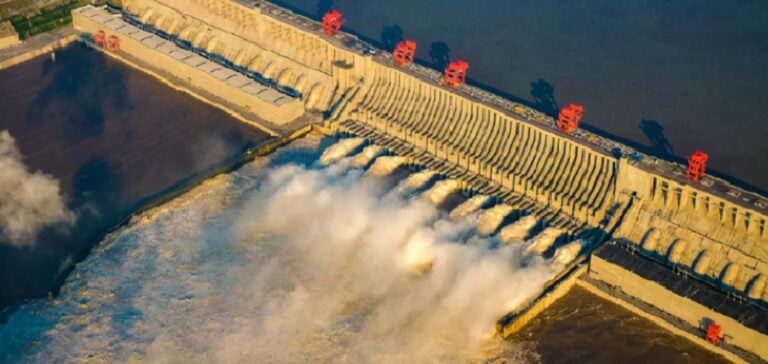The Chinese government has approved the construction of a 10-gigawatt (GW) hydropower dam on the lower reaches of the Yarlung Zangbo River in the Xizang Autonomous Region. This initiative aligns with the national strategy to accelerate energy transition and achieve peak carbon emissions by 2030 and carbon neutrality by 2060.
Strategic and Energy Objectives
With this infrastructure, China aims to harness one of the country’s largest hydropower potentials while complementing it with solar and wind energy developments in surrounding areas. This project forms part of a broader strategy to diversify the energy mix and reduce reliance on fossil fuels.
The dam will also contribute to national energy security by providing stable, large-scale renewable energy. Authorities expect it to become a lever for green industrialization in the region, attracting investments in sustainable energy sectors.
Economic and Logistical Impact
Beyond its environmental benefits, the project is designed to stimulate local industries, including engineering, transportation, and logistics. Local authorities anticipate significant investment growth in infrastructure and job creation, contributing to improved economic conditions in Xizang.
The development also aims to strengthen critical infrastructure, particularly in water and electricity management, while bolstering economic connections with other Chinese provinces.
Safety Measures and Ecological Preservation
The project’s approval followed extensive geological and ecological studies. Authorities emphasized the prioritization of structural safety and environmental conservation. Environmental monitoring systems will be implemented to minimize negative impacts on local biodiversity.
This project, regarded as a cornerstone of China’s energy policy, underscores the country’s commitment to balancing economic development with ecological sustainability.






















